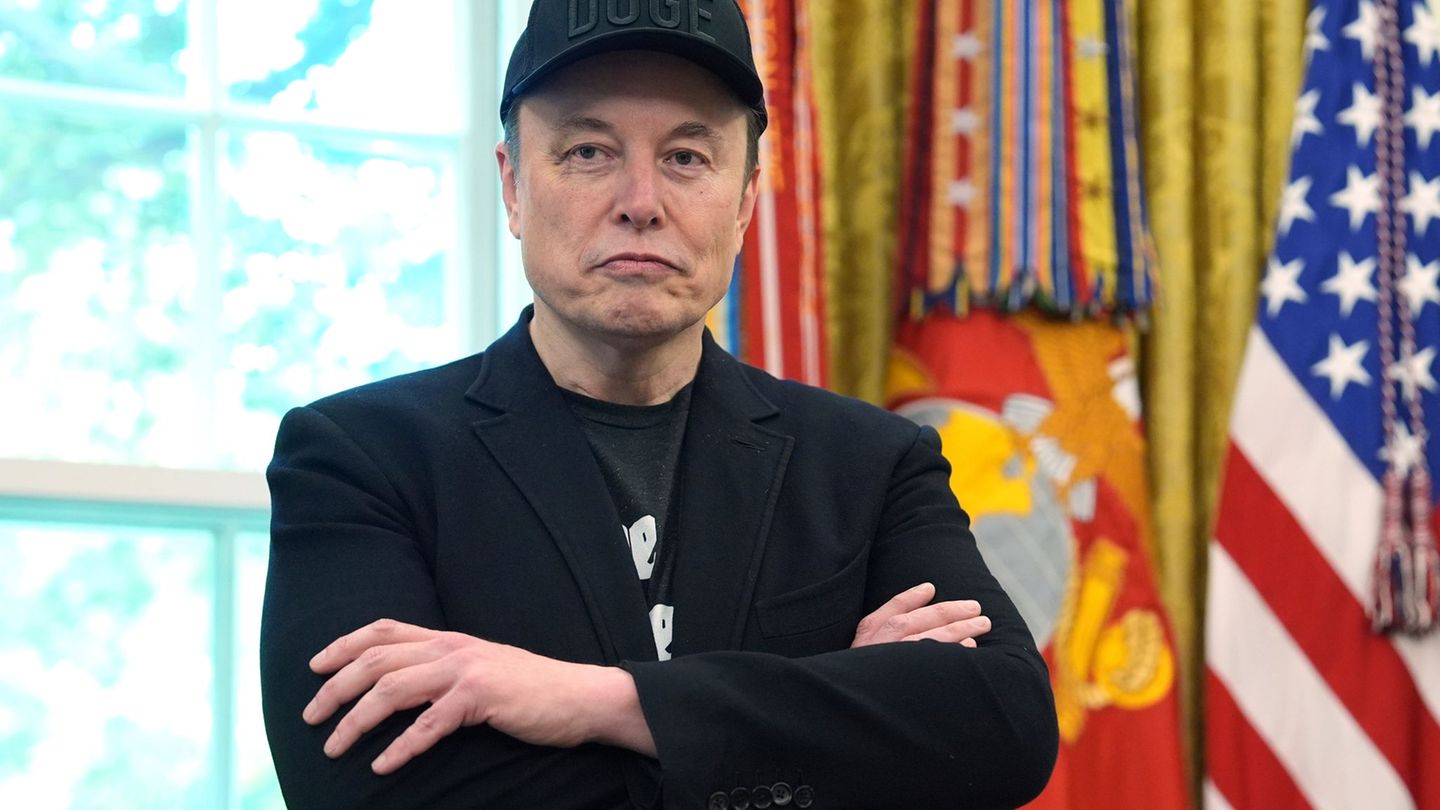Federal election
Scholz is preparing the way for new elections with a vote of confidence
Copy the current link
It is the first concrete step towards new elections for the Bundestag: Chancellor Scholz asks for the Bundestag’s trust in just two sentences. He wants to achieve the opposite.
Almost exactly three years after taking office, Chancellor Olaf Scholz (SPD) paved the way for new elections to the Bundestag on February 23rd with a motion for a vote of confidence. A messenger brought the letter from the Chancellery to the Reichstag building, less than 600 meters away, to Bundestag President Bärbel Bas (SPD). The document is intended to ensure that the federal election takes place seven months earlier than planned.
The motion, signed personally by Scholz, only consists of two sentences: “Dear President of the Bundestag, in accordance with Article 68 of the Basic Law, I am submitting a motion to express confidence in me. I intend to do so before the vote on Monday, December 16, 2024 to make a statement.”
Scholz asks the MPs for their trust, but he wants to achieve the opposite: that a majority does not agree to the proposal. In this case, Federal President Frank-Walter Steinmeier has 21 days to dissolve the Bundestag at the request of the Chancellor and set the date for new elections.
“In a democracy, it is the voters who determine the course of future politics,” said Scholz after submitting the application. “In the election, you decide how we answer the big questions that lie before us.” The Chancellor included securing jobs, modernizing industry, reliable care and health care, stable pensions and a peace solution for Ukraine.
Will the Federal President support the plan?
It is practically impossible for Steinmeier to refuse to dissolve the Bundestag. He has already explained what criteria he will use to make his decisions: “Our country needs stable majorities and a government capable of acting.” This has no longer been the case since the expulsion of FDP Finance Minister Christian Lindner and the resulting exit from the traffic light coalition on November 6th. Since then, Scholz has led a government supported by the SPD and the Greens, which no longer has a majority in the Bundestag and can therefore no longer implement anything without support from the opposition.
How will the vote go on Monday?
In the Bundestag on Monday, Scholz will explain his reasons for the vote of confidence to MPs in a speech lasting around 25 minutes. There will then be a debate lasting around 90 minutes. Parliament will then probably decide in a roll-call vote. This means that the voting behavior of each individual MP will be published with a slight delay. So no parliamentarian can speak anonymously for or against Scholz.
Is it certain that Scholz won’t get a majority?
It is practically certain that Scholz will fail with the vote of confidence. The Bundestag has 733 members. In order to gain parliament’s trust, Scholz would have to receive 367 votes – the absolute majority of all parliamentarians, also known as the “Chancellor’s majority”. The SPD parliamentary group with its 207 MPs wants to express its confidence in the Chancellor. The Greens, the SPD’s junior partner still in government, announced on Wednesday after much hesitation that they wanted to abstain. “In order to bring about an early election for the Bundestag, the vote of confidence must fail. We will make this possible with the abstention of the Green parliamentary group in the Bundestag,” explained the group leaders Britta Haßelmann and Katharina Dröge.
What is behind this decision?
The Greens want to prevent the AfD from thwarting the coalition’s new election plans. If the Greens voted for Scholz, that would be a total of 324 votes, just 43 fewer than the Chancellor’s majority. Then the AfD, with its 76 MPs, could mathematically help Scholz gain a majority. However, this is considered impossible with the Greens’ decision.
What happens next if Scholz loses?
He will then propose to Federal President Steinmeier to dissolve the Bundestag, which he then has three weeks to do, i.e. until January 6th. If Steinmeier decides to do so, which is considered certain, the new election must take place within 60 days. The SPD, the Greens and the Union, the largest opposition faction, have agreed on February 23rd as the election date. The Federal President has already made it clear that he considers this date to be realistic.
Is the Bundestag still able to act after the dissolution?
Yes. “The “old” Bundestag will remain in existence with all its rights and obligations until the new Bundestag meets,” says a report by the Bundestag’s scientific services. Parliament can meet again at any time, it can continue to pass laws, and its committees such as committees of inquiry also continue to exist until the end of the electoral term. This end is reached with the first meeting of the newly elected Bundestag.
Is it realistic that the Bundestag will still make far-reaching decisions?
Scholz is calling for the passage of several legislative proposals with financial relief before Christmas. “A solidarity of the democratic center on these important issues would be a strong signal,” said the SPD politician after submitting his application. He appealed to MPs, including the opposition: “Let us act together in the interests of the citizens.” It remains to be seen whether the Union, as the largest opposition faction, will take part.
Specifically, it is about increases in child benefit and child allowances, relief from the so-called cold progression in income tax, the financial security of the Deutschlandticket and a stabilization of electricity network fees. It’s about “a few but very important decisions” that, in his view, cannot be postponed, said Scholz.
dpa
Source: Stern
I have been working in the news industry for over 6 years, first as a reporter and now as an editor. I have covered politics extensively, and my work has appeared in major newspapers and online news outlets around the world. In addition to my writing, I also contribute regularly to 24 Hours World.




